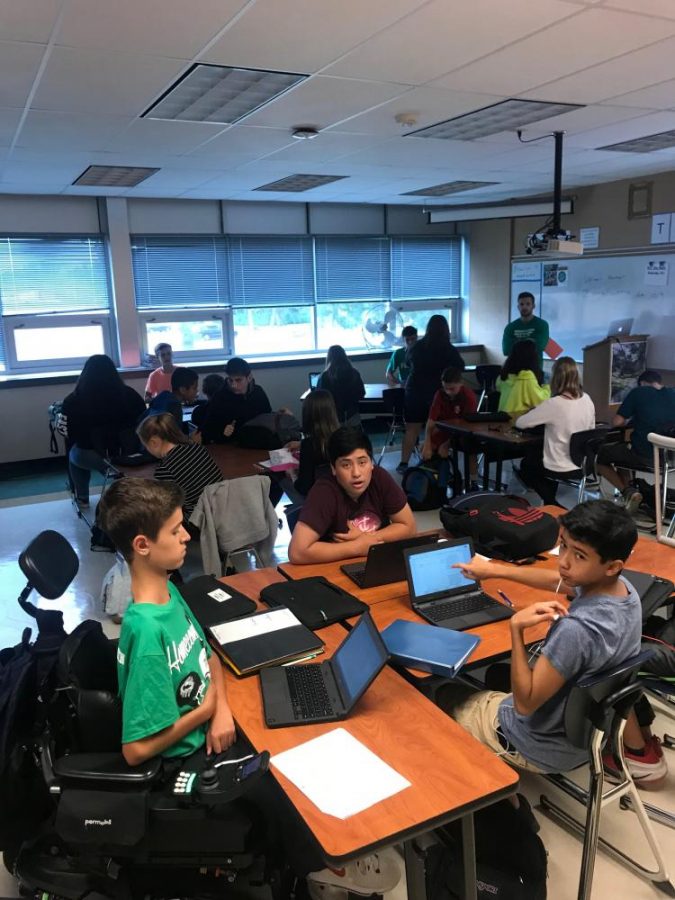Students reflect on TRP Program at GHS
October 6, 2017
As the first term of the year is rapidly coming to an end, the Transitional Resource Period (TRP) is nearly concluded as well.
Linda Havas, the TRP Administrator, explains the meaning and purpose of TRP.
“The TRP program was first implemented at the beginning of the 2013-14 school year to help GHS freshmen develop the skills needed to succeed in high school,” she said. “Students in TRP learn about and discuss a variety of topics such as time management, organizational study skills and academic integrity.”
Many upperclassmen agree that this program was beneficial because it helped guide their pathway in high school.
“TRP was helpful for me in the sense that I was able to work on homework and have the opportunity built in for me to talk to teachers about difficult concepts, which helped me ease into high school,” junior Anna Turdo said.
Havas explains the main benefits she believes students should get out of this class.
“TRP helps our freshmen lay the groundwork for future success. Even a simple exercise about how to most effectively budget and manage one’s time, gets students to think about their own schedules and hopefully they will apply what they’ve learned,” Havas said.
TRP is three days a week, Monday, Tuesday, and Friday. The class starts at 7:15 a.m. and ends at 7:40 a.m. Students are expected to arrive to class on time and complete the work assigned in this class. However, many students express mixed feelings about TRP.
“I don’t enjoy waking up 30 earlier than I would normally have, just to work on the types of surveys we’ve done in the past,” freshman Briahna Lynch states. “It makes my mornings harder and I have not learned anything that I haven’t learned before. It has not made my transition easier. It hasn’t made it harder, but I have not learned any new skills from this class.”
Freshman, Annabelle Hoth, expresses assorted feelings on TRP.
“I don’t like normal TRP days because I don’t find the lessons super important, but I get why we have them. It’s helpful, but not life-changing and it doesn’t seem like it should be mandatory for all,” she said. “To me, the only beneficial part that I’ll keep for the long run is the other study options and test-taking tips they gave us. I believe it has made the transition easier. We got to start the day without upperclassmen and we got to develop a normal relationship with a teacher that we could always go back to if we needed help. Plus, it helped to give us tips about high school and there was someone to answer all our questions when we had it.”
For student benefits, TRP has been adjusted over the years. According to Havas, students take a survey at the end of TRP expressing what they thought about the program, and the administration takes their comments into consideration.
“For example, more discussions of organization and time management became part of TRP after students reported that they wanted more help and guidance in that area,” she said.
In addition to this change, TRP was initially one semester long, which has also been cut down to one term.
“The schedule changes brought on with the addition of the pass-fail Academic and Career Planning course this year required some schedule changes in TRP too, so TRP was reduced to a six-week experience,” she said.
